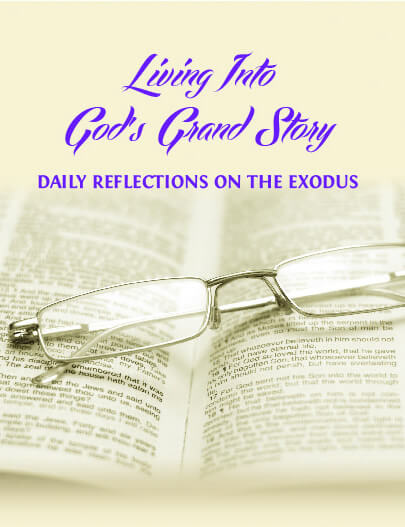
I Corinthians 10:1-4, 11
The Exodus story has been a spiritual map throughout the Scriptures and church history to guide people on their journey. It is a story deeply embedded in our collective psyche that mirrors Israel’s experience of God. Jews and Christians alike have found in the Exodus a way of understanding God and His redeeming work. People find meaning and purpose in rereading the Exodus story as their story.
In coming to America the Pilgrims appropriated the Exodus story by making it their own. They thought of themselves as having left the Egypt of Europe, crossing the Red Sea of the Atlantic, and, finally landing in a wilderness, entered into God’s Promised Land. They imagined themselves as having been delivered from ‘Pharaoh’ King James, and redeemed into religious freedom.
Immediately after signing the Declaration of Independence, Benjamin Franklin, Thomas Jefferson, and John Adams were tasked to come up with a design for the Great Seal of the United States. Franklin proposed an image of Moses with his rod lifted high while the Egyptian army drowned in the Red Sea. Jefferson proposed a similar Exodus image depicting the Israelites marching through the wilderness led by God’s pillar of cloud and fire. Although the Continental Congress eventually chose another design (see back side of the dollar bill), these initial suggestions by leading Founders demonstrate the power of the Exodus story for them.
For the slaves in America the Exodus imagery was equally powerful and inspiring. The slaves reread the Exodus story as their story, comparing their sufferings to the sufferings of Israelite slaves yearning for the Promised Land. They sang hopeful songs such as “Turn Back Pharaoh’s Army”, and “Bound for Canaan Land”. The Exodus gave meaning and dignity to their awful circumstances.
The later Civil rights movement also looked to the Exodus for inspiration and courage. They read themselves into the Exodus and used its language in their struggle, singing, “Let my people go”. Like a modern day Moses, Martin Luther King rallied the people: “I’ve been to the mountaintop. And I’ve looked over. I’ve seen the Promised Land.”
Like these who have gone before, you and I live by stories. Stories shape our lives and help us make sense of what happens. For instance, when I was a chaplain for young men in prison I saw the power of stories for them. But unfortunately their stories were stories of abuse, violence, addiction, hopelessness, and self-destruction. I sought to help them re-story their lives into God’s story of bondage, redemption, and grace. God calls us to leave old territory behind and enter into His promise, that is, the Exodus story!
REFLECTION
- What stories have influenced your life? In what ways do you think they might have shaped you?
- Thinking back over your life story, what do you see as some major themes? How would you right now want to “write” the next few chapters?
- Take some moments in God’s presence talking to Him about what you see in your life story. What are you grateful for in your story? What troubles or confuses you in your story?



